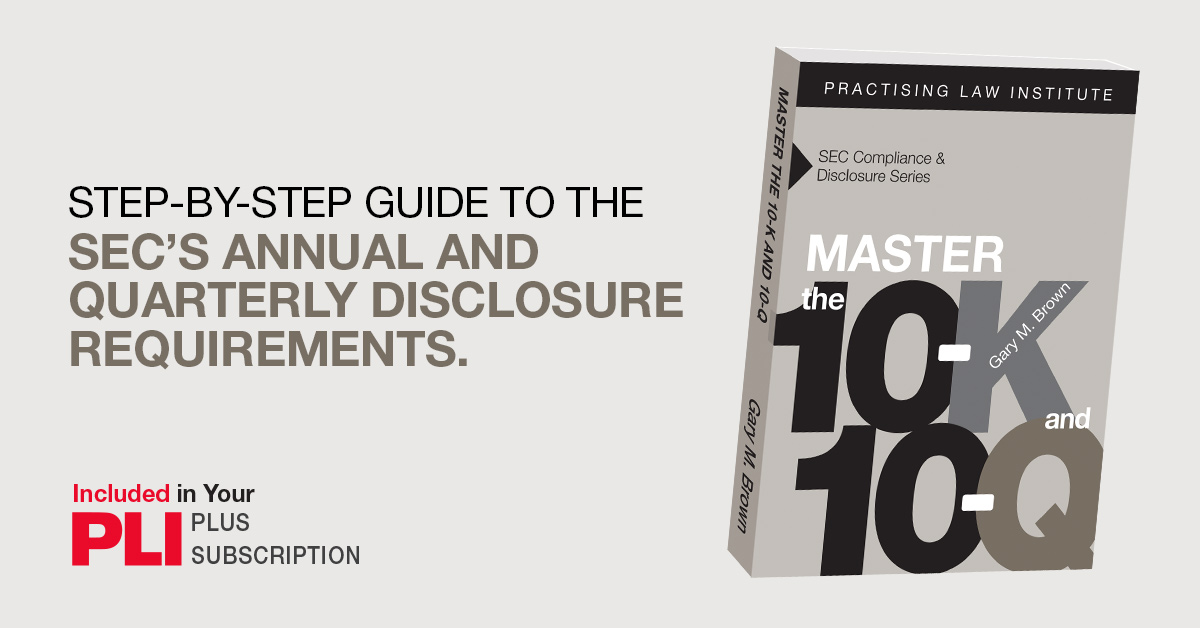Securities Law and Practice Deskbook remains your definitive one-volume guide to the Securities Act of 1933 (“Securities Act”), the Securities Exchange Act of 1934 (“Exchange Act”), relevant rules and regulations, and key case law. The book is intended to serve as an initiation into the U.S. federal securities laws and the way that securities lawyers approach problems. It also is meant to serve more experienced practitioners as a general review and first resource when approaching an unfamiliar area of securities law.
Release #13 brings you up to date on the latest important developments in securities law. Highlights include:
• Chapter 5, Reach of Securities Act Regulation. Cryptocurrencies and “ICOs” (initial coin offerings) continue to be the rage at the U.S. Securities and Exchange Commission. The Commission brings a first-of-its-kind enforcement action against the operator of an unregistered token “exchange.” Significant fines and penalties continue to be imposed with respect to unregistered token offerings. Also , the Commission instituted and settled enforcement actions against celebrity promoters of ICOs for violations of the Securities Act’s “anti-touting” provisions. Finally, the Commission also pursues enforcement action against the 21st-century example of “free stock” “airdropping” tokens in blockchain scenarios.
• Chapter 6, Securities Act Registration Exemptions. The number of PIPE offerings was essentially flat during 2018, but offering amounts were up 44%, to $31 billion. In response to a congressional requirement, the Commission made Regulation A+ available to reporting companies.
• Chapter 8, Liability for Securities Act Violations. Beware the “tout sheet.” Emphasizing Commission enforcement action under Securities Act section 17(b), that section gets applied in connection with the Commission’s focus on ICOs as the Commission brings “anti-touting” enforcement actions against professional boxer Floyd Mayweather Jr. and music producer Khaled Khaled, known as DJ Khaled, for failing to disclose payments they received for promoting investments in ICOs.
• Chapter 9, Registration and Periodic Reporting Under the Exchange Act. An enforcement action against Tesla and Elon Musk underscores the need to proceed with caution when using social media to satisfy the company’s disclosure obligations. The Commission continues its focus on non-GAAP financial measures with first-of-its-kind enforcement action for violation of the “equal or greater prominence” requirement.
• Chapter 10, Regulation of Proxy Solicitations. After lengthy delay, the Commission adopts the hedging disclosure requirements that were required by section 955 of the Dodd-Frank Act. The fate of several Dodd-Frank rules (e.g., pay for performance and “clawbacks”), continues to be unclear. New Staff Legal Bulletins in the shareholder proposal area urge companies to submit board analyses when seeking to exclude shareholder proposals under the “ordinary business” and “economic relevance” grounds for exclusion.
This essential treatise is available on PLI PLUS. If you would like to order a print copy, please contact libraryrelations@pli.edu.
